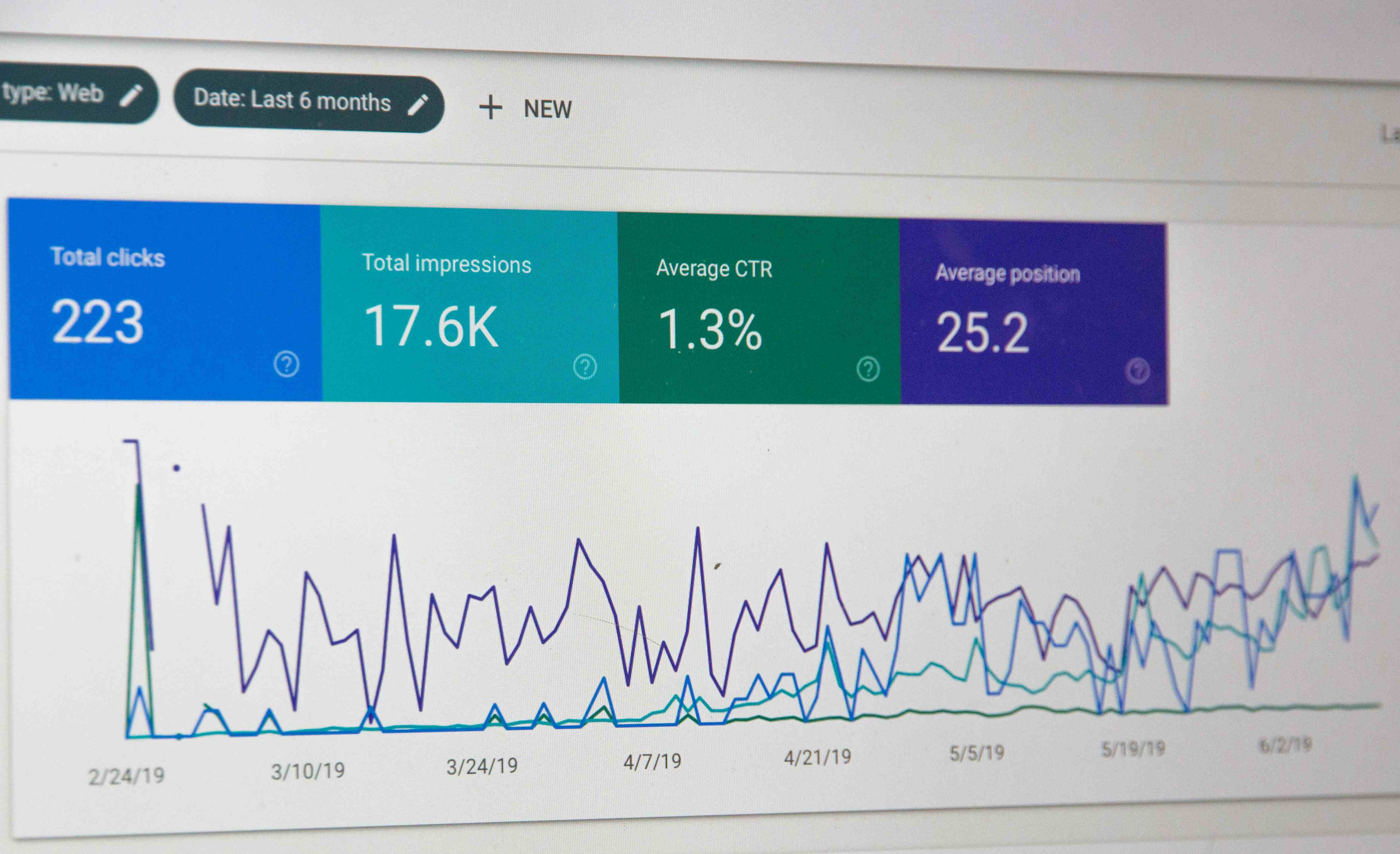"Want your business to show up on Google? Learn how SEO works for small businesses in Kenya and how RatifiedTech can help you get found and get clients."
SEO for Small Businesses in Kenya: How to Get Found, Build Trust, and Attract Paying Clients
The Truth About Why Your Website Isn’t Bringing Clients
If you’ve ever asked yourself,
“Why isn’t my website bringing in clients?”
You’re not alone.
Across Kenya, hundreds of small businesses — from lawyers in Westlands to dentists in Nakuru and accountants in Kisumu — have websites that look good… but don’t get seen.
The truth is, having a website is not enough anymore. You also need visibility.
And visibility online comes from one simple, powerful discipline: SEO.
What SEO Really Means (In Plain English)
SEO, or Search Engine Optimization, is the process of helping your website show up when people search for what you offer on Google.
It’s not about tricking Google — it’s about communicating clearly with it.
When done right, SEO tells Google:
“Hey, when someone in Nairobi searches for ‘wedding photographer near me,’ this business should show up — because they’re exactly what that person is looking for.”
It’s both an art and a science.
Here’s how it works in simple terms:
- On-page SEO — What you say on your website: keywords, titles, meta descriptions, headings, and how you structure your content.
- Technical SEO — How your website performs: loading speed, mobile friendliness, security (HTTPS), and how easy it is for Google’s crawlers to read your site.
- Off-page SEO — What others say about you: backlinks, citations, reviews, and brand mentions from credible sources.
When you align all three, your business starts showing up in the right searches — not by luck, but by design.
Why SEO Matters for Small Businesses in Kenya
Let’s be real — Kenya’s digital economy is growing fast. More people are searching online before buying or hiring.
Whether it’s:
- “Best salon in Kilimani”
- “Plumber in Rongai”
- “Graphic designer in Nairobi”
- “Web development agency in Kenya”
Those searches represent intent — people ready to take action.
If your business doesn’t show up when those searches happen, you’re leaving money on the table.
Here’s why SEO should matter deeply to every small business in Kenya:
1. Visibility = Opportunity
If customers can’t find you, they’ll find your competitors. SEO ensures you show up at the exact moment someone needs what you sell.
2. It Levels the Playing Field
With good SEO, a small business in Thika can outrank a big corporation in Nairobi. Google doesn’t care about company size — it cares about relevance and quality.
3. It’s a Long-Term Asset
Unlike paid ads that stop the moment you stop paying, SEO keeps working for you 24/7. It compounds over time.
4. It Builds Trust and Credibility
People naturally trust what they see on page one. Ranking well subconsciously communicates authority — even before they visit your site.
5. It Reduces Marketing Costs
Once you start ranking organically, your cost per lead drops dramatically. You’re not constantly paying for clicks — you’re earning them.
A Story: The Law Firm in Westlands
Let’s paint a picture.
You run a boutique law firm in Westlands, Nairobi. You’ve got a small, well-decorated office, a few loyal clients, and a professional website. You’ve handled cases well, you’re proud of your work — but new clients aren’t flowing in consistently.
You ask yourself:
“Why don’t more people know we exist?”
One evening, a young entrepreneur in Westlands needs help registering her business. She goes on Google and types:
“Business registration lawyer in Westlands”
She clicks on one of the first results. It’s another law firm. Their website is simple but has service pages like:
- “Company Registration in Westlands”
- “Legal Consultation for Startups”
- “Corporate Law Services Near Me”
She reads their clear copy, sees testimonials, and calls them immediately.
You never even entered the race — not because your firm isn’t good, but because Google didn’t know you were relevant to that search.
Now imagine a different version of this story.
You’ve optimized your site with service-based keywords: Family Law in Westlands, Legal Consultation Nairobi, Business Registration Lawyer Kenya.
Your Google Business Profile is verified, your reviews are genuine, and your site loads fast on mobile.
That same young entrepreneur searches again — and this time, your firm appears first.
She calls.
You close.
That’s SEO at work — quietly connecting search intent with your expertise.
What Makes SEO Different from Social Media or Ads
You might be wondering,
“But can’t I just rely on Instagram or TikTok for clients?”
Good question. Here’s the difference:
| Channel | Type of Traffic | Duration | Intent | Cost |
|---|---|---|---|---|
| Social Media | Interruption-based | Short-term | Low buying intent | Continuous effort |
| Paid Ads | Transactional | Stops when budget ends | High | Expensive over time |
| SEO | Search-based | Long-term | High buying intent | Compounding, organic |
Social media builds awareness and personality — but SEO brings qualified leads who are actively looking for what you offer.
When someone Googles “SEO services in Kenya,” they’re not browsing — they’re looking to hire.
How SEO Actually Works
Think of SEO like a three-step process that makes your business discoverable:
Step 1: Make Google Understand You (On-Page SEO)
Google is like a librarian. It wants to know what your business does so it can recommend you to the right person.
Here’s how you help it understand:
- Use relevant keywords naturally across your site.
- Write descriptive titles like “Affordable Cleaning Services in Nairobi.”
- Add meta descriptions that summarize each page.
- Use headings (H1, H2, H3) logically to structure your content.
- Add alt text to images so Google can interpret them.
This part is like telling Google your story clearly.
Step 2: Make Your Website Easy to Read (Technical SEO)
Even if your content is great, poor structure can hurt you.
Check these boxes:
- Ensure your site loads in under 3 seconds.
- Make it mobile-friendly.
- Use HTTPS for security.
- Submit your sitemap to Google Search Console.
- Fix broken links and crawl errors.
This helps Google’s bots index your pages easily.
Step 3: Earn Google’s Trust (Off-Page SEO)
Google measures credibility by how others talk about you.
That’s where backlinks, citations, and reviews come in.
When trusted sites link to you, it’s like a digital “vote of confidence.”
For example:
- Get mentioned on local directories like Yellow Pages Kenya or Clutch.co.
- Write guest blogs on niche platforms.
- Ask satisfied clients to leave a Google review.
The more trusted signals you earn, the more Google believes your business is legitimate.
Local SEO: Your Secret Weapon
If you run a business that serves a specific area — like a café, clinic, or marketing agency — then local SEO is your best friend.
It’s how people nearby find you when they search “near me” terms like:
“Dental clinic near me”
“Car wash in South C”
“Website developer in Westlands”
To dominate local SEO:
- Create and verify your Google Business Profile.
- Add your address, phone number, and operating hours consistently.
- Get reviews from real clients.
- Add location-specific content on your website (like blog posts mentioning your area).
- Add your business to credible local directories.
When done right, your business can start appearing in Google Maps results — even above big websites.
SEO Results Take Time — But They’re Worth It
Many business owners give up too early because SEO takes time to mature.
Think of it like farming:
You plant today, water tomorrow, and harvest in a few months.
Here’s a realistic timeline:
- Month 1-2: SEO audit, keyword research, technical fixes, content plan.
- Month 3-4: Optimization and content publishing.
- Month 5-6: Rankings begin improving; traffic starts to grow.
- Month 6-12: Compounding effect — strong rankings, steady organic leads.
If you’re consistent, the results stack up. One good article or optimized page can bring you leads for years.
Real-Life SEO Wins in Kenya
Let’s make this tangible.
Imagine a small photography studio in Ruiru.
They start blogging about:
- “How to Choose a Wedding Photographer in Kenya”
- “Best Locations for Outdoor Shoots in Nairobi”
- “Affordable Studio Photography Packages in Kenya”
Each post targets a keyword. Within 3 months, they start showing up for local searches. Soon, inquiries start trickling in — not from followers, but from Google users who never knew them before.
Or take RatifiedTech, a brand that has successfully ranked on Google’s AI Overview for terms like “best website development agency in Kenya.”
That’s not by accident. It’s by combining technical SEO, quality content, and consistent authority building.
If you want to see how professional SEO is implemented, check this out:
👉 RatifiedTech – SEO Optimization in Kenya
How to Get Started with SEO (Even on a Small Budget)
You don’t need a massive budget to start improving your visibility.
Here are a few practical steps you can take today:
1. Audit Your Website
Check:
- Is your website mobile-friendly?
- Does each page target a clear keyword?
- Are your meta titles and descriptions well-written?
Tools like Google Search Console, Ahrefs, or Ubersuggest can help.
2. Claim Your Google Business Profile
It’s free and boosts your local SEO instantly. Add photos, respond to reviews, and keep your hours updated.
3. Optimize Your Service Pages
Each service you offer should have its own page with clear copy.
For example, instead of one “Services” page, create:
- “Corporate Law Services in Nairobi”
- “Property Law in Kenya”
- “Family Law Consultation Westlands”
4. Create Helpful Content
Blog about your expertise.
If you’re a salon owner, write “How to Choose the Right Hairstyle for Your Face Shape.”
If you’re a marketer, write “5 SEO Mistakes Kenyan Businesses Make.”
Each post builds topical authority.
5. Earn Backlinks Naturally
Collaborate, write guest posts, or get featured in Kenyan directories.
Quality links > Quantity of links.
6. Track and Improve
Use Google Analytics and Search Console to see what’s working.
Double down on pages that perform well.
Common SEO Mistakes Kenyan Businesses Make
- Copying competitors’ content — Google values originality.
- Ignoring mobile experience — Most Kenyans browse on their phones.
- Keyword stuffing — Sounds spammy and hurts rankings.
- Neglecting local SEO — Missing out on nearby clients.
- Not tracking progress — SEO without data is guesswork.
Avoid these, and you’re already ahead of 80% of small businesses.
The Bigger Picture: SEO as Business Strategy
SEO isn’t just a marketing tactic — it’s a business growth strategy.
It aligns with everything that matters:
- Brand positioning
- Lead generation
- Customer trust
- Long-term scalability
By investing in SEO, you’re building digital equity. Every optimized page, every backlink, every piece of content adds to your online footprint — a footprint that doesn’t disappear when trends shift.
Think of it as owning digital real estate on Google.
Final Thoughts
SEO is not about chasing algorithms — it’s about understanding people.
People search because they have a need.
Your job as a business is to meet that need clearly and credibly online.
Whether you’re a law firm in Westlands, a salon in Kilimani, or a SaaS company in Nairobi, the goal is the same: Get Found. Build Trust. Get Clients.
And if you’d like to fast-track that journey with a proven partner, explore:
RatifiedTech – SEO Optimization in Kenya
Let’s make sure when someone searches for what you do — they find you first.
Written by RatifiedTech — helping Kenyan businesses grow through SEO, strategy, and smart web design.



